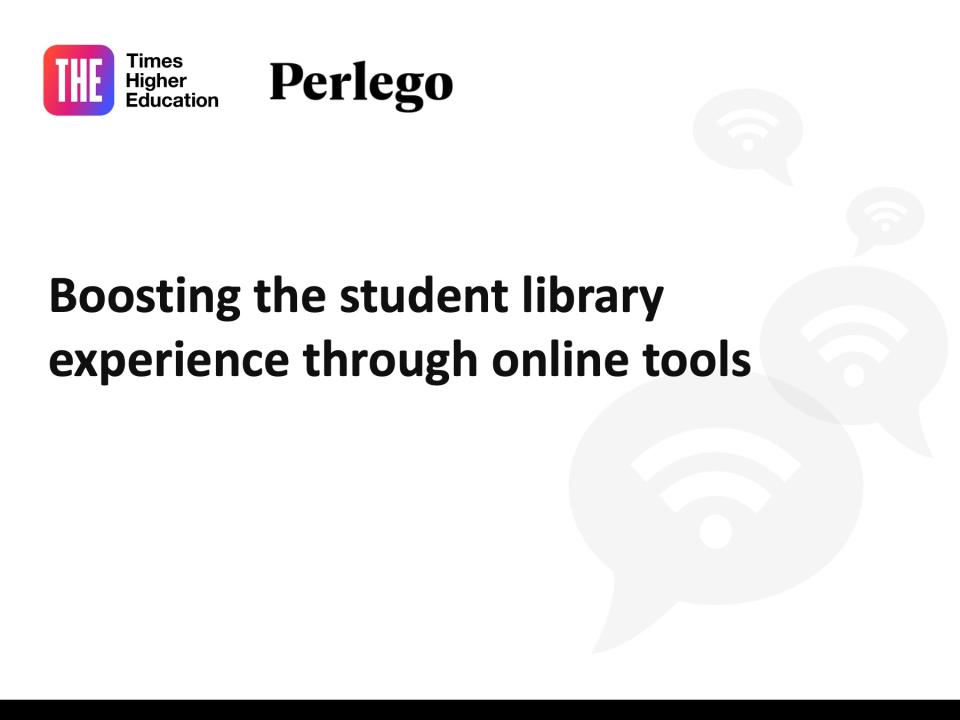Supporting students with simple access to content in a way that best suits the individual is vital, according to Jo Webb, head of library learning and teaching support at Sheffield Hallam University. During a Times Higher Education webinar, held in partnership with Perlego, a panel of experts in university library management discussed how to simplify the way students access resources, and the role of online tools in this process.
Perlego is a subscription-based online library that offers unlimited access to more than a million books from a global range of publishers and aims to provide this simple access. Matt East, learning product manager at Perlego, said that students having to access content through multiple services and with variable licences puts the focus on learning systems rather than enabling their subject learning.
Hannah Groom, content delivery librarian at the University of Essex, agreed. “We have platforms for every single publisher, different aggregators, so many things,” she said. This leads to students preferring print because their notes are in one place, she added.
Another consideration for online library access is digital poverty and data poverty, said Clare Snowdon, academic librarian at Teesside University. Around half of students have internet access issues or use older devices that aren’t compatible with some online products. Access problems also extend to browser compatibility and are time-consuming to troubleshoot, Webb said.
Enabling students to download material for offline use is vital, said Sarah Ison, online distance learning librarian at the University of Sussex. She echoed the group’s frustration at having to explain to students that they can’t access an e-book because of limited licences.
Demand can be dependent on academics, explained Lisa McLaren, head of library services at Solent University. When making reading lists, academics who provide context as to why a book, article or chapter is important produce high usage. In comparison, a title on a reading list with no context or further mention is often ignored. “It’s important for librarians to be able to work with academic staff to get those bits embedded. That scaffolds and helps students move forward,” she said. Academics must select content they know the library can provide, said Groom.
Publishers that work with Perlego help to increase the diversity of content available to students and the scope for “serendipitous discovery”, East said. The chance to find ideas presented in a different voice or cultural approach is invaluable. A hard barrier to access can come when a publisher pulls digital content mid-term. When Perlego faces this, East contacts the publisher to explain the implications of what is usually an automated process, he said.
The access problem was tackled head on by the University of Sussex. McLaren said that a book increased in price fourfold, so the university developed a new textbook. “It’s a really good example of a university fighting back against this and developing our own solutions,” McLaren said.
Ison said that Sussex had also rethought the concept of the library. “We’re building a new library with no books in it,” she said. For Sussex, a library’s purpose was to provide space for learning, collaboration and creativity, she said.
The panel
- Matt East, learning product manager, Perlego
- Julia Gilmore, branded content manager EMEA and the Americas, Times Higher Education (chair)
- Hannah Groom, content delivery librarian, University of Essex
- Sarah Ison, online distance learning librarian, University of Sussex
- Lisa McLaren, head of library services, Solent University
- Clare Snowdon, academic librarian, Teesside University
- Jo Webb, head of library learning and teaching support, Sheffield Hallam University
Watch the webinar on demand above or on the THE Connect YouTube channel.
Find out more about Perlego.


comment